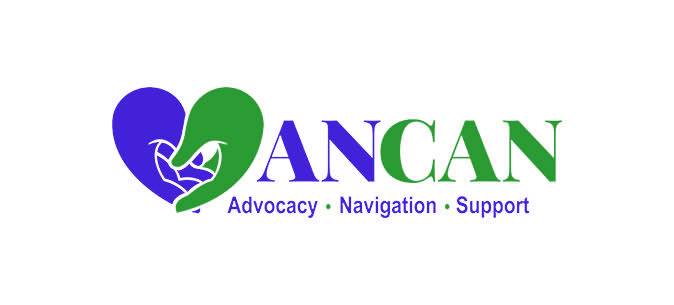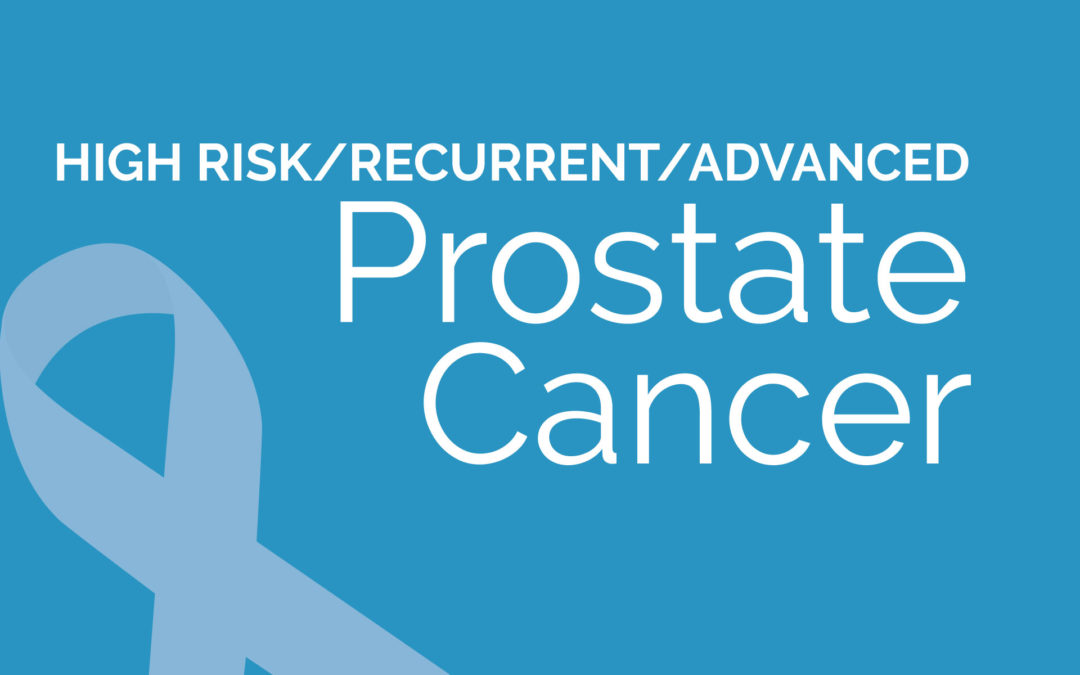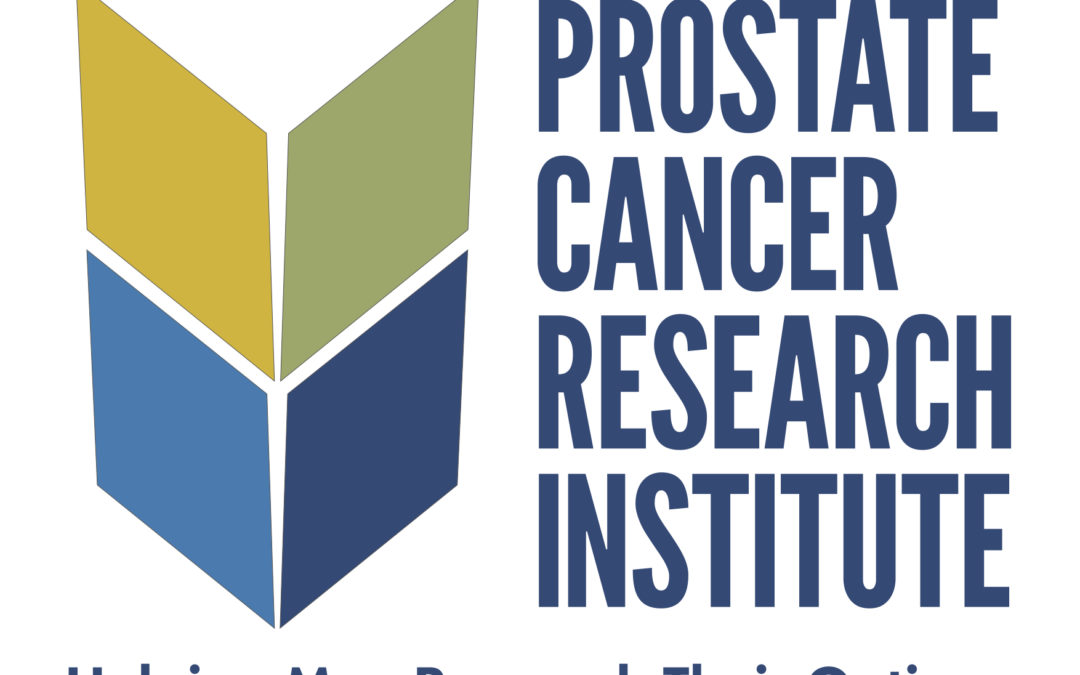


High Risk/Recurrent/Advanced Prostate Cancer Virtual Group recording – 03/16/20
PLEASE NOTE – for reasons best known to GtM, we only have audio this week. Nor does there appear to have been any use of the Chat Window.
Editor’s Pick: LHRH drugs and mental anguish – a topic near and dear to my heart. I consider myself fortunate to have known ‘The Black Dog’, as Churchill called depression, before I went on Lupron. That was a blessing for me in that it was much esier for me to handle and absorb. My heart goes out to men who suffer depression &/or anxiety with no prior experience. (rd)
Topics Discussed:
condolences to Jim Ward; who’s at risk from COVID-19?; low PSA, soft -tissue PCa endures for 20 years; multiple treatments at one hospital visit; LHRH drugs cause anxiety and depression; medical marijuana; radiating the prostate in advanced disease; with recurrence, at what PSA level should you scan?; frequency and type of scans to monitor advanced disease

AnCan Virtually Arrives!!
In the dim, distant past of 2011, or was it 2012, I had just been kicked out the support group I co-moderated by a very insecure lead. Rather than the one-on-one interview style he practiced that made the large, weekly group feel they were eavesdropping on a private conversation, I worked hard to promote conversation and bring everyone into play. If the back-and-forth developed a life of its own, moderation was successful. Like a tugboat, moderators could just nudge a little here and there to keep discussion on track while sprinkling information and education into the wake.
So when a good buddy of mine suggested we start an online TV channel, I took him seriously. My friend had been in the virtual meetings world pretty much since inception and encouraged me to explore. I, however, had no interest in talking at an audience – I wanted to converse and interact with it. Support groups were much closer to my virtual ideal than a TV Channel. Moreover, virtual support groups tackled three issues where physical groups got a resounding ’F’.
- Geographical ‘disabilities’ were removed – no one was restricted by distance or remote location
- Physical disabilities evaporated – everyone could join no matter their state of mobility
- Social disabilities faded – those who felt uncomfortable in a physical group or suffered from agoraphobia could attend, and those who were just plain shy could ‘lurk’.
To my amazement in 2012, I found only two (2) virtual support groups on the world wide web; one for post-partum depression, and the other for dieting. In the two-dimensional virtual world of written forums, there were options and I quickly became a celebrity. By providing solid experience and guidance – never medical advice!! – many sought my input. Then I discovered a telephone support group based out of the northern Midwest …. and from thereon history was made.
As possibly the first peer-led support group for any condition, I turned what originated as a men’s psycho-social support come drinking club into a bona fide, condition driven, virtual support group. By advertising on the written group forums, attendance grew rapidly. We went from one to two monthly meetings. Then we split the group by severity of disease – newbies did not want to be chatting with those suffering advanced disease. And soon we had to split again as numbers exceed 30+ participants per group. Within a couple of years, we had four then six groups each month; and, we received endorsements and co-sponsorship from a major support and education non-profit.
The phone platform also seemed inadequate just as virtual platforms became affordable. No longer did you have to commit thousands of dollars to host on WebEx when GoToMeeting and then Zoom catered to the individual consumer. Adding visuals created yet another dimension, bringing the virtual support group experience even closer to a physical meeting. Video was always optional, and you could join by phone as well as online – we strove to maintain the lowest barriers to entry. And our meetings were always free and drop-in … no registration required.
Gradually our moderators learned best practices – how to keep a meeting moving; how to avoid people talking over each other; how to ‘listen’; how to bring everyone into the virtual group discussion. In 2016, our vision got formalized when we founded a non-profit, Answer Cancer Foundation, starting with the six groups then in existence. While all for one condition, my vision was much wider.
We knew that if it worked for the condition we were living with, this same experience could work for other illnesses and conditions …. especially for rare diseases where even in the best circumstances gathering a physical support group was challenging. And for conditions beyond cancer …. and for more than just those living with the condition – like caregivers. In 2019, Answer Cancer Foundation became AnCan as we launched a multiple sclerosis group. And as I write today, we host more than 20 meetings each month for cancer and non-cancer. We are proud to offer two virtual groups for rare diseases, and about to introduce new virtual meetings for blood cancers, and for ovarian cancer.
So here we are in 2020, in the midst of a global pandemic living within the parameter of social distancing. Many are suddenly recognizing the value of virtual meeting places. Some, like my nemesis the lead moderator mentioned in the first paragraph, had the audacity to tell a telcon of support group facilitators last week, that Zoom is inexpensive and everyone’s answer; he had tried it for the first time earlier in the week. I could not resist piping up that AnCan currently hosts nine (9) virtual meetings per month just for our cancer; that we have been doing so for eight years with our co-sponsor who, by the way, was hosting the telcon; and, that we would be delighted to share our know-how with anyone that needed help. And oh yes … that GoToMeeting offered a free room over the next 3 months for anyone that needed!

Is there an elephant dancing around Howard Wolinsky’s latest article?
Our Advisory Board Member, Howard Wolinsky’s latest article on Medpage Today tiptoes around a very sensitive issue while making an excellent point. Place a bunch of different medical specialties in the same room to make a decision, the so called MultiD Approach, and you go a long way to neutralize a factor that can often act against patients’ best interests.
There’s an elephant gambolling through Howard’s article, acknowledged but not mentioned in so many words … and here’s the clue. The ‘MultiD’ approach appears to be restricted to Centers of Excellence and Medical Institutions where, as Dr. Kuban mentions – she doesn’t get paid for each patient she sees!
We are talking “financial conflict of interest”. That’s the same bad actor lurking in the background and chuckling as it gets the PSA test rather than the physician blamed for ‘overtreatment’. How often do you hear a community urologic oncologist recommending radiation – or a community radiation oncologist pushing surgery? These practitioners understand each others specialties and their side effects well enough, so it’s tough to buy the argument that it’s because they know their specialty best. Here at AnCan we would argue it’s because these docs earn more money by treating the man themselves – the patients’ interests get subordinated to the doctors’ pockets.
AnCan totally endorses the MultiD Approach – but wonders how it will ever be implemented outside the salaried environment of large medical institutions and Centers of Excellence??.

PCRI goes VIRTUAL for its Mid-Year Update Conference
For our prostate cancer followers, patients & caregivers, PCRI announced yesterday that its mid-year one-day conference on Saturday, March 28 will now be held as a virtual gathering with a live FREE stream …. all you need do is register here.
The conference features as always the dynamic variety duo, Drs. Mark Moyad and Mark Scholz. They will be joined by 3 excellent speakers:
- GU Medical Oncologists, Dr. Evan YU from Seatle Cancer Alliance/ University of Washington Med School
- Radiation Oncologist, Dr. Jeffrey Demanes from UCLA
- Genomic specialist, Dr. Joannne Wiedhaas, UCLA
Each speaker will be followed by Q&A fielding your written questions that can be submitted ahead of time. And it will conclude with 90′ of Q&A with Moyad & Scholtz.
This is a terrific opportunity for you to ask the experts all those questions your own medical team has not answered completely and/or we are not fielding in one of our NINE, yes 9!, monthly VIRTUAL PC support groups. AND this crew will respond to personal situations and provide somewhat filtered medical advice that we cannot do.
That should cover it all, but just in case not, here again is the PCRI Conference website:
https://pcri.org/2020-midyear-update#myu-speakers-topics
See you there … O&U, rd
